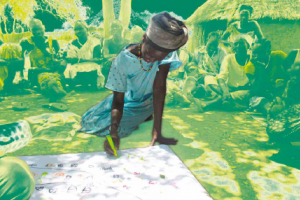The GEF Independent Evaluation Office articipated in two sessions at the 2018 UNEG Evaluation Practice Exchange (EPE):
1. ICT for data collection and analysis in evaluations. Session 3.4. Tuesday, May 8 at 2:00 pm.
Lead convener: Katinka Koke (UNITAR)
Collaborators: Shravanti Reddy (UNWOMEN), Juha Uitto (GEF), Carlo Carugi (GEF), Hansdeep Khaira (IFAD), Brook Boyer (UNITAR), Olivier Vandamme (UNITAR), Michael Craft (OIOS), Luisa Belli (FAO).
Description: The discussion topics focused on how different ICT tools such as machine learning, geospatial data and big data can be used in evaluations for both data collection and analysis. Participants learned from four out of the six different presentations organized by the collaborators who will talk about their organizations' experience. Participants will then get the opportunity to interact with the collaborators by asking questions or sharing their own experiences, facilitated by the collaborator's discussion question.
2. Evaluating policy support. Session 3.5. Wednesday, May 8 at 11:00 am.
Lead convener: Veridiana Mansour (FAO)
Collaborators: Olivier Cossée (FAO), Alena Lappo (FAO), Juha Uitto (GEF), Carlo Carugi (GEF), Arild Hauge (UNDP), Sasha Jahic (UNDP), Andrew Fyfe (UNCDF), Felix Herzog (UNESCWA)
Description: This session aimed to explore the contemporary complexities and challenges of evaluating policy support through shared experiences of the different methods and approaches used by evaluators. Evaluators who have been - or are likely to be- involved in evaluations related to policy support (in particular regarding SDGs) are predominantly concerned with this topic. The five stages of evaluation (agenda-setting, policy-setting, implementation, M&E/data, policy environment) will be discussed in five working groups. At the end of the session participants are expected to have: i) a common understanding on the challenges and complexities involved in this type of evaluation; ii) knowledge of different practices experienced by the different organizations; and iii) a set of methods to evaluate policy support.
